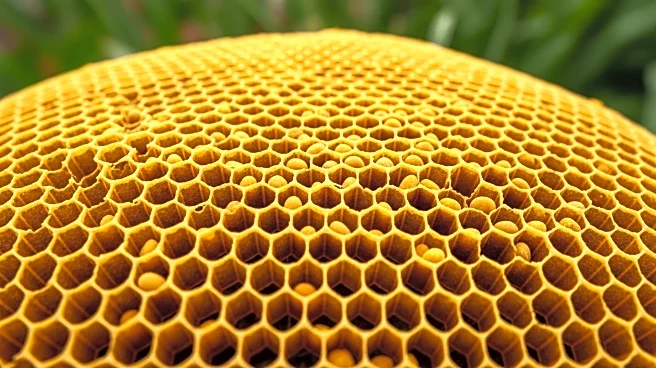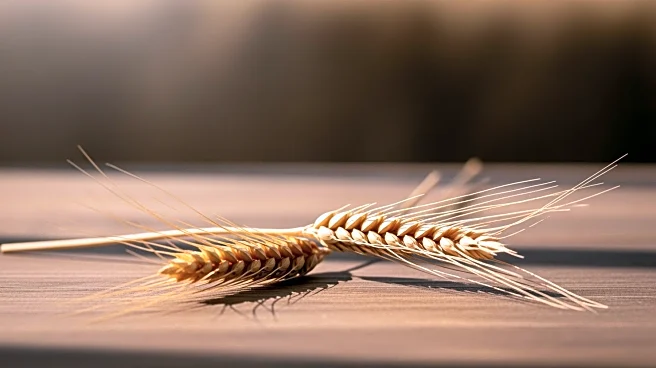What is the story about?
What's Happening?
A team of researchers in the United States has identified a promising new method to protect honeybee colonies from diseases by utilizing beneficial bacteria found in pollen. The study, led by Dr. Daniel May from Washington College, reveals that endophytes—symbiotic bacteria and fungi living inside plant tissues—produce antimicrobial compounds that can protect both plants and their pollinators. The research, published in Frontiers in Microbiology, involved collecting pollen from native plant species and honeybee hives, isolating strains of actinobacteria, and testing their effectiveness against various pathogens. The findings suggest that these bacteria, particularly from the genus Streptomyces, could serve as a natural defense mechanism for honeybees, potentially leading to new eco-friendly treatments for bee diseases.
Why It's Important?
The discovery holds significant implications for agriculture and environmental sustainability. Honeybees play a crucial role in pollinating crops, and their decline due to diseases poses a threat to food production and biodiversity. By harnessing the natural antimicrobial properties of endophytes, beekeepers could reduce reliance on chemical treatments, promoting healthier bee populations and ecosystems. This approach could also benefit crop protection, as the same bacteria show potential against plant pathogens. The research underscores the importance of biodiversity, suggesting that a diverse plant landscape supports a variety of beneficial microbes that can enhance bee health and resilience.
What's Next?
Future research may focus on developing practical applications of these findings, such as introducing beneficial bacteria into hives to combat specific pathogens. This could involve creating formulations or delivery systems that ensure the effective transfer of these microbes to bee colonies. Additionally, further studies could explore the potential of these bacteria in agricultural settings, offering a dual benefit of protecting both bees and crops. Stakeholders, including beekeepers, farmers, and environmentalists, may collaborate to implement these natural solutions, potentially influencing policy and practices in sustainable agriculture.
Beyond the Headlines
The study highlights a broader ecological perspective, emphasizing the interconnectedness of plant and animal health. It suggests that fostering plant diversity not only supports bee populations but also enhances the microbial diversity that contributes to ecosystem resilience. This research could inspire a shift towards more holistic approaches in agriculture and conservation, recognizing the value of natural symbiotic relationships in maintaining ecological balance.

















